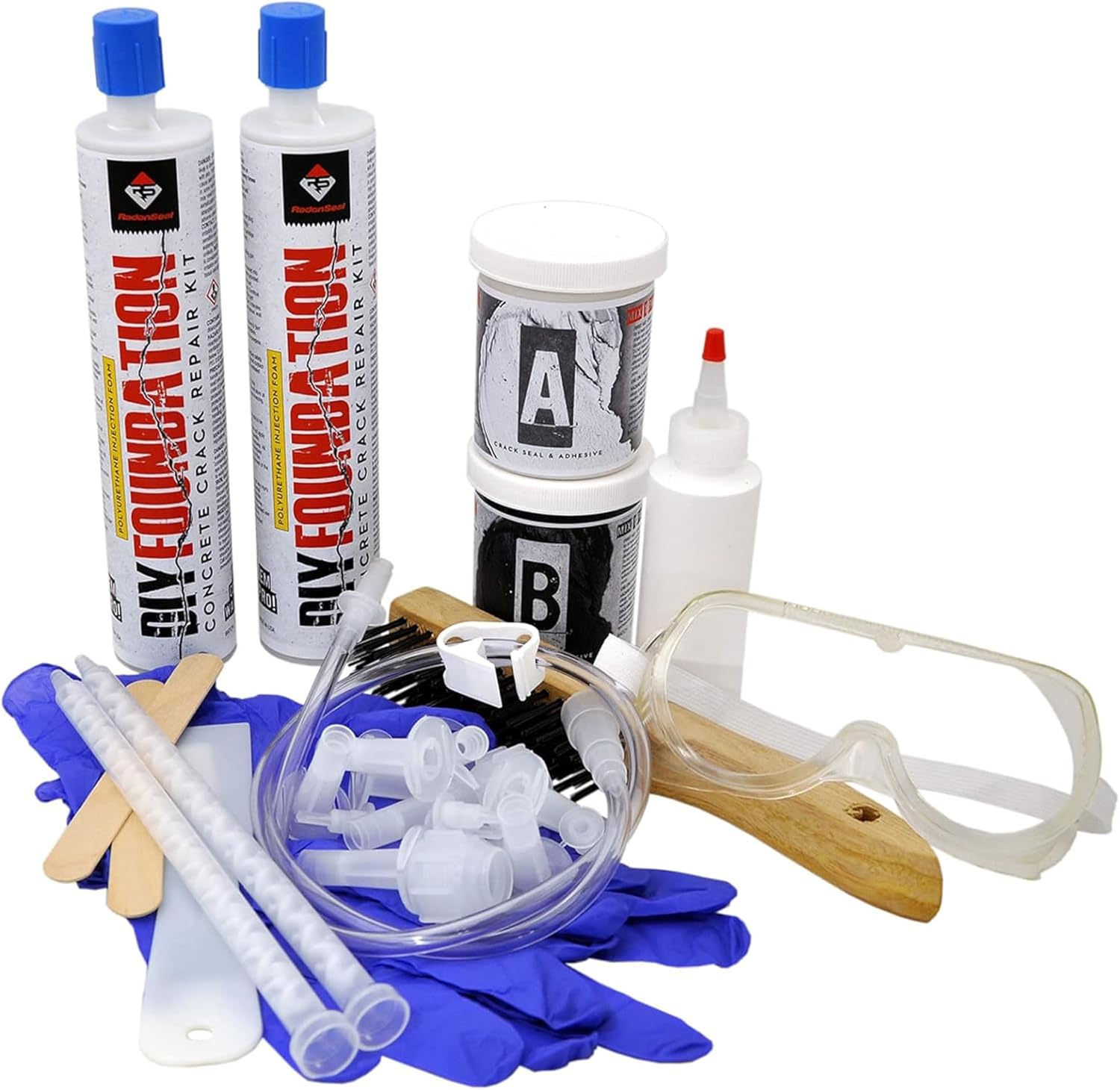







Price: $154.00
(as of Apr 12, 2025 01:17:25 UTC - Details)
The Ultimate Guide to Choosing the Best Sealant for Basement Walls
Introduction
If you're a homeowner, you know that a dry basement is crucial for maintaining the integrity of your home. But what is the best sealant for basement walls? This question is on the minds of many, especially those dealing with dampness or water seepage issues. In this guide, we'll explore various sealants, their benefits, and how to choose the right one for your basement needs. Whether you're looking for waterproofing solutions or simply want to prevent mold growth, we have you covered.
Understanding the Need for Basement Sealants
Why Seal Your Basement Walls?
When it comes to your basement, moisture is enemy number one. Water can cause structural damage, lead to mold growth, and create an unhealthy living environment. Knowing the best sealant for basement walls can help you protect your home. Sealants act as a barrier against water intrusion, keeping your basement dry and safe.
Types of Basement Sealants
There are several types of sealants available, each designed for specific applications. Understanding these can help you make an informed decision.
1. Acrylic Sealants
Acrylic sealants are easy to apply and are ideal for minor cracks and gaps. They are water-based, making them easy to clean up and environmentally friendly. These sealants offer flexibility, allowing them to expand and contract with temperature changes.
2. Polyurethane Sealants
If you're dealing with significant water issues, polyurethane sealants might be your best bet. They form a strong, waterproof bond and are perfect for sealing larger cracks. These sealants are more robust than their acrylic counterparts, making them a popular choice for basement walls.
3. Epoxy Sealants
For those looking for a long-lasting solution, epoxy sealants offer superior protection. They bond well to concrete and can withstand high pressure, making them ideal for basements prone to flooding. However, they require a bit more effort to apply compared to other sealants.
Key Factors to Consider When Choosing a Sealant
1. Water Resistance
When searching for the best sealant for basement walls, water resistance is the most critical factor. Ensure the sealant you choose is specifically designed for waterproofing. Look for products that mention "waterproof" or "water-resistant" on the label.
2. Ease of Application
Some sealants are easier to apply than others. If you're a DIY enthusiast, you might want to choose a sealant that comes in a ready-to-use format, such as a caulk tube or spray. This will save you time and effort during the application process.
3. Cure Time
Different sealants have varying cure times. If you need a quick fix, look for products that cure within a few hours. However, for more permanent solutions, you might consider sealants that take longer to cure but offer better durability.
Step-by-Step Guide to Applying Sealant on Basement Walls
1. Preparation
Before applying any sealant, ensure your basement walls are clean and dry. Remove any dirt, dust, or old sealant. This step is crucial for ensuring a strong bond between the sealant and the wall.
2. Choosing the Right Tools
Depending on the type of sealant you choose, you may need different tools. For caulk-based products, a caulking gun is essential. For larger applications, consider using a roller or brush.
3. Application Process
Follow the manufacturer’s instructions carefully. Apply the sealant evenly along the cracks and joints. Be sure to fill any gaps fully to prevent water from seeping through.
4. Curing Time
Allow the sealant to cure as per the instructions. Avoid touching or disturbing the area until it’s fully cured to ensure optimal results.
Long-Term Maintenance Tips
1. Regular Inspections
After sealing your basement walls, it's essential to check them regularly. Look for signs of wear, cracking, or moisture. Early detection can save you from more significant issues down the road.
2. Control Humidity
Consider using a dehumidifier in your basement. Keeping humidity levels low will prevent mold growth and help maintain the integrity of your sealant.
3. Proper Drainage
Ensure that water drains away from your home's foundation. Gutters and downspouts should direct water away to prevent it from pooling around your basement walls.
Conclusion
Choosing the best sealant for basement walls can make a significant difference in protecting your home from moisture and mold. Whether you opt for acrylic, polyurethane, or epoxy sealants, understanding your needs and the specific characteristics of each product is vital. By following our guide and considering the factors we've outlined, you can ensure that your basement remains dry and safe for years to come. Don't wait for water damage to occur—take action today and seal those basement walls!
Drill-Free Crack Repair: Advanced two-component low-pressure injection creates a durable, watertight seal that permanently repairs hairline cracks from the inside, eliminating the need for expensive repairs.
Heavy-Duty Coverage: Low-viscosity urethane is specifically formulated to penetrate and seal even the smallest hairline cracks, ensuring a long-lasting permanent seal.
Water-Resistant Seal: Formulated to remain flexible, accommodating natural concrete movement while its hydrophobic properties repel water, soil gases, and even radon, preventing shrinkage and deterioration over time.
Easy to Apply: Easily apply the low-viscosity, two-component urethane using a standard caulking gun for professional-grade crack repairs with minimal effort.
Trusted Quality: Engineered for professional-grade performance, RadonSeal products are proven to provide reliable quality and durability, ensuring strong, lasting results for foundations, walls, basement floors, and more.
Use What the Pros Use: Save time & money using the same expanding foam crack filler used by waterproofing contractors.
